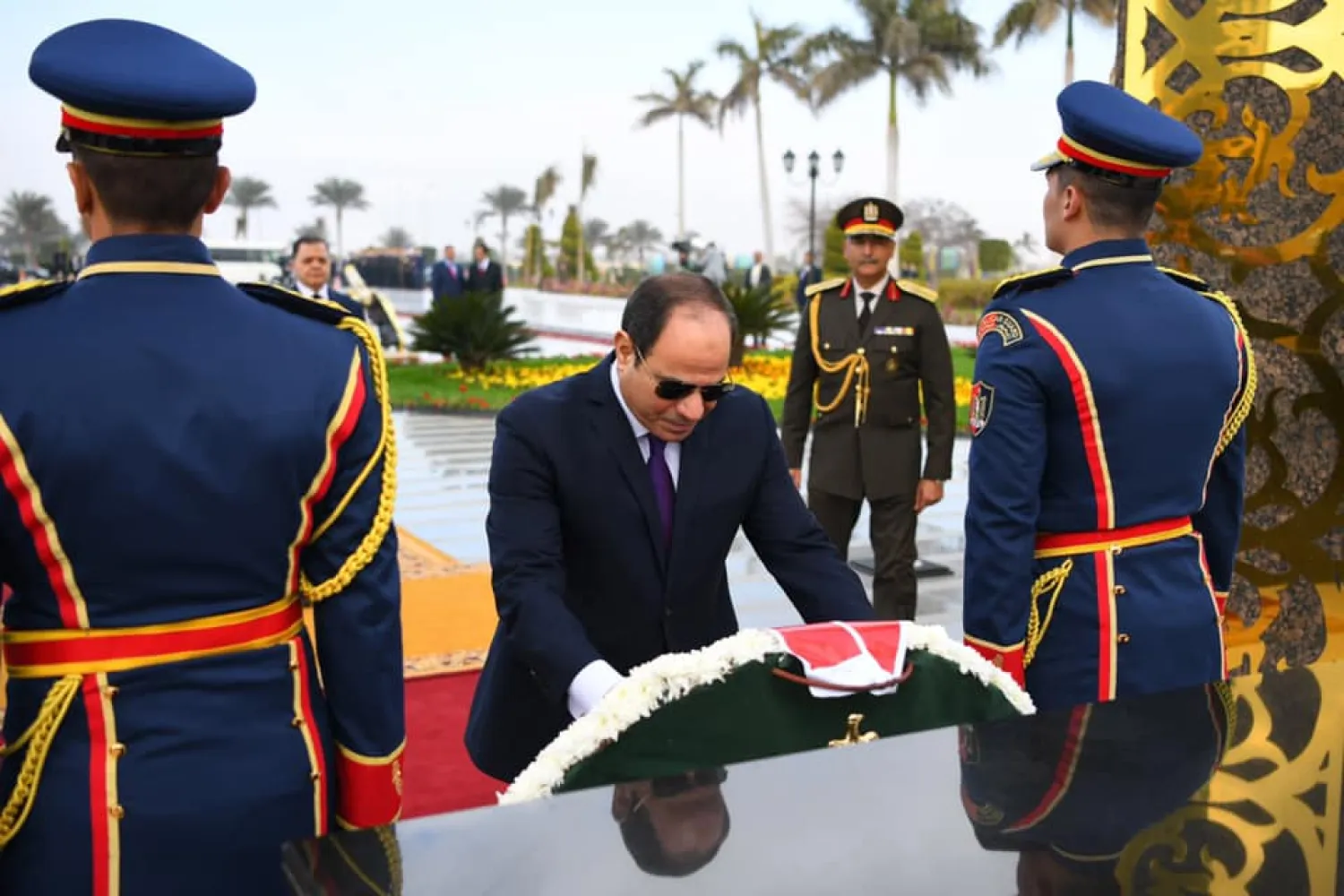Egyptian President Abdul Fattah al-Sisi declared on Thursday that his country has become an “oasis of security and stability”, after years of political and security turbulence that followed the January 25, 2011 revolution that ousted President Hosni Mubarak.
Sisi spoke at the annual ceremony celebrating Police Day, which falls on January 25.
“The whole world has seen how Egypt has turned into an oasis of security and stability in only a few years,” he told a large audience of government officials, commanders in the country's security apparatus and religious leaders at Egypt's police academy in eastern Cairo.
“I will always value and take pride in the fact that you and your fellows in the armed forces are facing a fierce battle against dark terrorism," he said.
“Today coincides with the anniversary of the January 25 revolution with its noble demands that the Egyptian citizen would lead a dignified life,” he stressed.
“History will pause long to admire the Egyptian example, which stems from the strong will and determination of the people, who have withstood unprecedented economic measures in wake of unstable regional and local circumstances,” added the president
Interior Minister Mahmoud Toufik stated that stability in Egypt can be attributed to his ministry’s security strategy that focuses on carrying out preemptive raids to destroy terrorist cells and plots.
Terrorism has been used to influence crises and carry out plots and conspiracies, but Egypt has deterred and is still deterring them through the strength of its state, leadership and people, he remarked.
Terrorism has not been defeated yet, he warned. This demands vigilance and strong efforts to counter any desperate attempts to undermine security or the gains of the people, he continued.
The minister accused the banned Muslim Brotherhood terrorist group of controlling terror organizations that are working on harming Egypt’s stability.
On Wednesday, the Interior Ministry issued a statement saying the Brotherhood was plotting to “spread chaos” and “undermine the country's stability” by using cyberspace to call for protests and rioting on January 25.
The statement said authorities had arrested members of the Brotherhood and discovered several weapon caches.
Plotters were coordinating their efforts with fugitive militants who reside in Turkey, the statement added.









